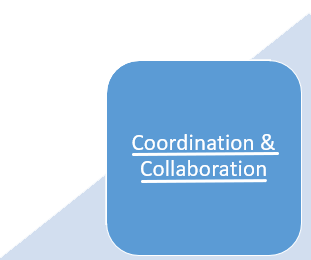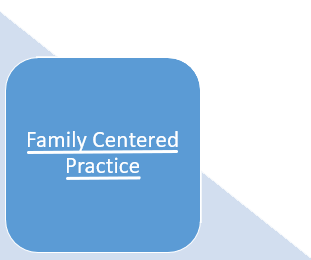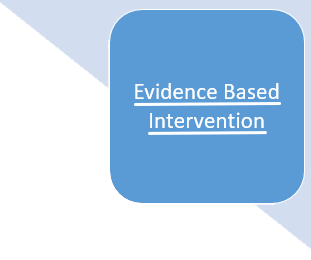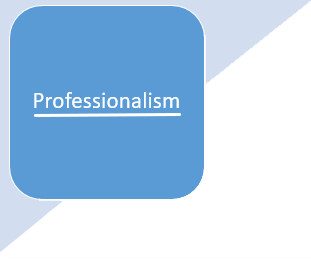Cross-Disciplinary Competencies
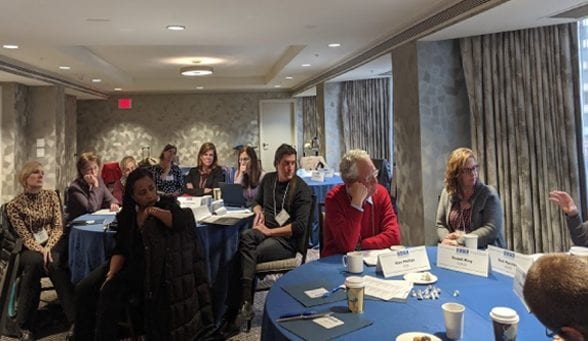
Over the past few years, the following seven national organizations representing disciplines providing services in early childhood have been participating in the alignment of personnel standards: the American Occupational Therapy Association (AOTA); the American Physical Therapy Association (APTA); the American Speech-Language-Hearing Association (ASHA); the Council of Exceptional Children (CEC) and the Division for Early Childhood (DEC), the National Association for the Education of Young Children (NAEYC); and ZERO TO THREE. Links to these organizations are provided below.
Each of these organizations provided the most recent description(s) of their personnel standards or competency areas (specific to their discipline) to the ECPC. A comparison was done across each of these documents to identify common areas of competence across all disciplines. The organizations agreed upon four common core areas of competence:
Representatives from each of the seven professional organizations reviewed the competency areas and sub-areas and presented these core competency areas for approval to each of their respective organizations.
The ECPC will create guides and exemplars of practice to demonstrate the core cross-disciplinary competency areas for use by professional organizations, Institutions of Higher Education, and State Systems of Early Childhood Personnel Development.
The Cross-Disciplinary Competency Areas, Definitions, and Indicators are laid out in this table: Cross-Disciplinary-Competency-Areas-and-Indicators_acc
Cross-Disciplinary Alignment Methodology.pdf
The Development of Core Cross-Disciplinary Early Childhood Competency Areas .pdf
*NEW Cross-Disciplinary User Guide
The purpose of this guide is for the reader to enhance one’s early childhood knowledge and practices through the application of the identified core cross-disciplinary competencies. The intended users of the guide include educators, practitioners, students, and families. It can be used for state team training, professional development, and higher education.
Case studies illustrate the cross-disciplinary competencies and are for use by Higher Education faculty and Professional development staff.
Interprofessional Core Competencies to Enhance Occupational Therapy Services in Early Childhood Settings .pdf Paper published in the OT Practice
Magazine - March 2019
Bruder, M. B., Catalino, T., Chiarello, L. A., Cox Mitchell, M., Deppe, J., Gundler, D., Kemp, P., LeMoine, S., Long, T., Muhlenhaupt, M., Prelock, P., Schefkind, S., Stayton, V., & Ziegler, D. (2019). Finding a common lens: Competencies across professional disciplines providing early childhood intervention. Infants & Young Children, 32(4),280-293.doi: 10.1097/IYC.0000000000000153

Office of Special Education and Rehabilitative Services Blog
Mary Beth Bruder: Improving Early Childhood Intervention
Sandra Schefkind: Voices from the Field
On this episode, Mary Beth Bruder, Professor of Public Health Sciences and Health Promotion, Pediatrics, and Educational Psychology at UConn, and the Director of Evidence-Based Practice at AOTA, Susan Cahill. Discuss Early Childhood Intervention, comprehensive systems of personnel development, and best practices for interdisciplinary care.
This article from the New York State Occupational Therapy Association (NYSOTA) outlines essential evidence-based and cross-disciplinary competencies for occupational therapists practicing in New York’s Early Intervention program. It emphasizes the importance of these guidelines in delivering high-quality, effective, and family-centered services to infants and toddlers with developmental delays and their families, ultimately promoting professional growth and excellence in care.
New York State Occupational Therapy Association. (2024, September 16). Ensuring Excellence in Early Intervention for Occupational Therapists in NY. Retrieved from https://www.nysota.org/news/681597/Ensuring-Excellence-in-Early-Intervention-for-Occupational-Therapists-in-NY.htm
Participating National Organizations
American Occupational Therapy Association (AOTA)
The American Occupational Therapy Association is the national professional association established in 1917 to represent the interests and concerns of occupational therapy practitioners and students of occupational therapy and to improve the quality of occupational therapy services.
American Physical Therapy Association (APTA)
The American Physical Therapy Association is an individual membership professional organization representing more than 100,000 member physical therapists (PTs), physical therapist assistants (PTAs), and students of physical therapy. APTA seeks to transform society by optimizing movement to improve the human experience.
American Speech-Language-Hearing Association (ASHA)
ASHA is the national professional, scientific, and credentialing association for 204,000 members and affiliates who are audiologists; speech-language pathologists; speech, language, and hearing scientists; audiology and speech-language pathology support personnel; and students. Audiologists specialize in preventing and assessing hearing and balance disorders as well as providing audiologic treatment, including hearing aids. Speech-language pathologists identify, assess, and treat speech and language problems, including swallowing disorders.
Council for Exceptional Children (CEC)
The Council for Exceptional Children (CEC) is the largest international professional organization dedicated to improving the educational success of children and youth with disabilities and/or gifts and talents. CEC advocates for appropriate governmental policies set professional standards provides professional development and helps professionals obtain conditions and resources necessary for effective professional practice. CEC is known as THE source of information, resources, and professional development for special educators.
The Division for Early Childhood (DEC) of the Council for Exceptional Children
The Division for Early Childhood promotes policies and advances evidence-based practices that support families and enhance the optimal development of young children (0-8) who have or are at risk for developmental delays and disabilities. DEC is an international membership organization for those who work with or on behalf of young children (0-8) with disabilities and other special needs and their families.
The National Association for the Education of Young Children (NAEYC)
The National Association for the Education of Young Children is a professional membership organization that works to promote high-quality early learning for all young children, birth through age 8, by connecting early childhood practice, policy, and research. We advance a diverse, dynamic early childhood profession and support all who care for, educate, and work on behalf of young children. The association comprises nearly 60,000 individual members of the early childhood community and more than 50 Affiliates, all committed to delivering on the promise of high-quality early learning. Together, we work to achieve a collective vision: that all young children thrive and learn in a society dedicated to ensuring they reach their full potential.
Zero to Three
Zero to Three works to ensure that babies and toddlers benefit from the family and community connections critical to their well-being and development. Healthy connections help build babies’ brains.
Participating National Organizations

Council for Exceptional Children
In 1922 the founders of CEC embraced professional standards and ethics for the field of special education. As the recognized leader for special education professional standards, CEC develops standards, ethics and practices and guidelines to assure that individuals with exceptionalities have well-prepared, career-oriented special educators.

The Division for Early Childhood of the Council for Exceptional Children - Recommended Practices
DEC Recommended Practices are a DEC initiative that bridges the gap between research and practice, offering guidance to parents and professionals who work with young children who have or are at risk for developmental delays or disabilities. The Recommended Practices were first developed by DEC in 1991 to provide guidance to the relatively new field of Early Intervention/Early Childhood Special Education. In the late 1990s, work was undertaken to revise the initial set of practices and establish the evidence base for the practices through an extensive review of the literature. Through recent collaborative work with the Early Childhood Technical Assistance Center (ECTA), the practices have been revised and updated, and a new set of DEC Recommended Practices is now available.

The National Association for the Education of Young Children (NAEYC) - Position Statements
NAEYC Position Statements state the Association's position on issues related to early childhood education practice, policy, and/or professional development for which there are controversial or critical opinions. Position statements are developed through a consensus-building approach. Learn more about how NAEYC position statements are developed.

American Physical Therapy Association (APTA) - Policies & Bylaws
This page contains APTA bylaws, positions, standards, guidelines, policies, and procedures, as passed by APTA's House of Delegates and Board of Directors.

Zero to Three - Public Policy
The ZERO TO THREE Policy Center is a nonpartisan, research-based resource for federal and state policymakers and advocates on the unique developmental needs of infants and toddlers. The Policy Center brings to bear ZERO TO THREE’s more than 30 years of research-based expertise on infant and toddler development to ensure that public policies reflect best practices and current research in support of our nation’s very young children.
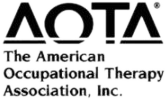
American Occupational Therapy Association (AOTA) Advocacy & Policy
This page provides a list of types of AOTA Official Documents including position papers, standards, statements and societal statements. The official documents are approved by the Representative Assembly for the use of the Association and its membership to guide practice. In addition, AOTA offers a series of evidence based tools and resources based on systematic reviews conducted by content experts.

American Speech-Language-Hearing Association - Standards Compliance
The mission of the CAA is to promote excellence in graduate education in the discipline of communication sciences and disorders for the professions of audiology and speech-language pathology through a peer review process of establishing and promulgating accreditation standards that encourage continuous quality improvement. Academic programs that are accredited by the CAA are to be commended for their work in preparing students/future graduates for the provision of highest quality services in audiology and speech-language pathology.
